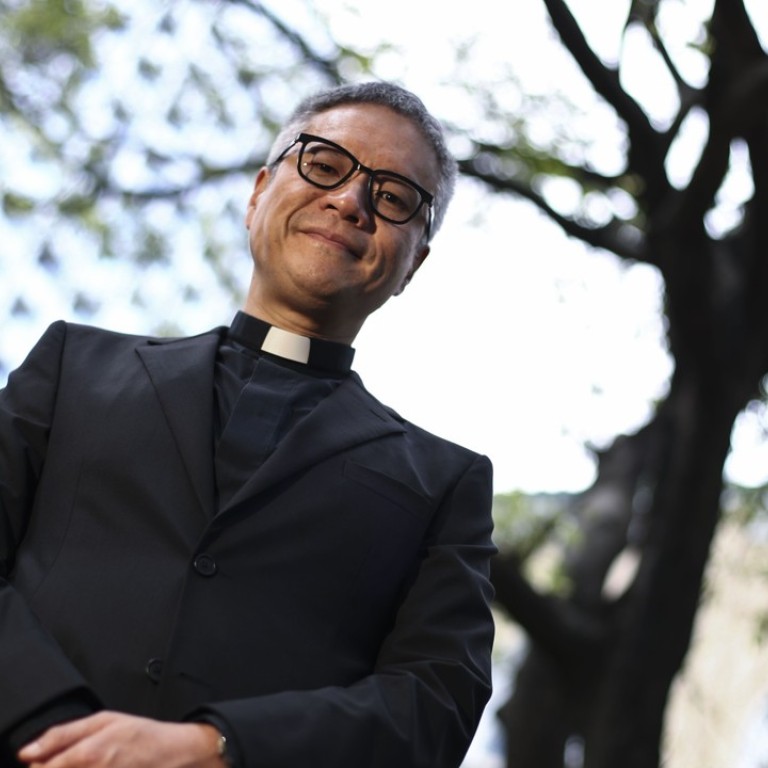
Religious leader backs Hong Kong law banning sexual orientation discrimination ... with conditions
But Anglican provincial secretary general opposes same-sex marriage in city
A top leader of Hong Kong’s Anglican Church has vowed he would back a law banning discrimination based on sexual orientation if it could “solve an acute problem” without being “too difficult” to enforce.
Anglican leader says Hong Kong schools should not discuss independence unless pupils are told of likely ‘civil war’
The Anglican Church, known locally as the Sheng Kung Hui, is one of the most powerful denominations in the city, with 40,000 followers.
They said LGBTI people in Hong Kong had experienced “significant discrimination”. But some Christian lawmakers and activists strongly opposed the plan, warning it would “undermine traditional values”.
Don’t donate blood if you’re gay – they don’t deserve your help
Asked if he would support a sexual orientation discrimination ordinance, Koon said: “If the legal provisions were not too difficult to enforce and could help [gays] not be discriminated ... and if there was consensus in society, it would also be OK for me personally.”
“Discrimination is absolutely wrong ... It should not happen in an open society which talks about respect,” he added.
Koon said authorities needed to make sure a law was worthwhile before introducing it.
Legalise same-sex marriage in Hong Kong, Canadian envoy says
“It depends on whether there is much discrimination against them. If that’s the case, it’s unfair for them ... and we should protect them just like we protect women and children,” he explained.
But on same-sex marriage, Koon expressed reservations, claiming it involved “too many issues, such as child adoption”.
He suggested that instead of legalising same-sex marriage, the issue could be resolved by allowing same-sex partners to sign a contract or covenant of companionship granting them the same rights in law as a marriage in certain areas, such as inheritance.
Hong Kong law must change to recognise my true self, transgender activist says
Koon believed the city was “not yet ready” to legalise same-sex marriage.
In June, the government launched a long-awaited public consultation on whether transgender people should be legally recognised in Hong Kong, but it did not touch on same-sex marriage or other related issues.
The consultation, running until next month, was conducted by a cross-departmental working group set up after the city’s top court in 2014 granted a male-to-female transgender person, known as W, the right to wed her boyfriend.
Landmark win for gay Hong Kong civil servant over husband’s benefits
The court told officials to consider how to address problems confronting transgender people by studying laws and practices overseas.
Koon said it would be “illogical” to forbid a transgender person from getting married if the person had a medical diagnosis of gender dissatisfaction and undergone surgery.
“I have heard some rather irrational voices, and some church groups said we have to be careful. But I told them [the issue concerns] a person who has changed his or her gender.”
But Koon added he had reservations about a gay rights group’s suggestion that a transgender person should be allowed to amend his or her birth certificate to get married.

